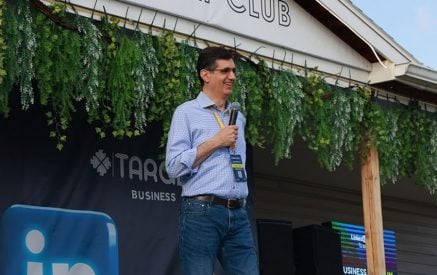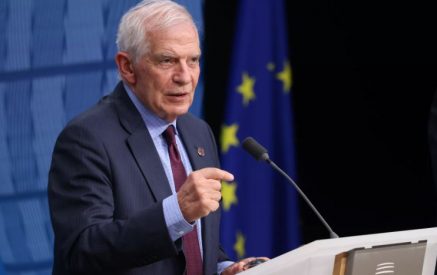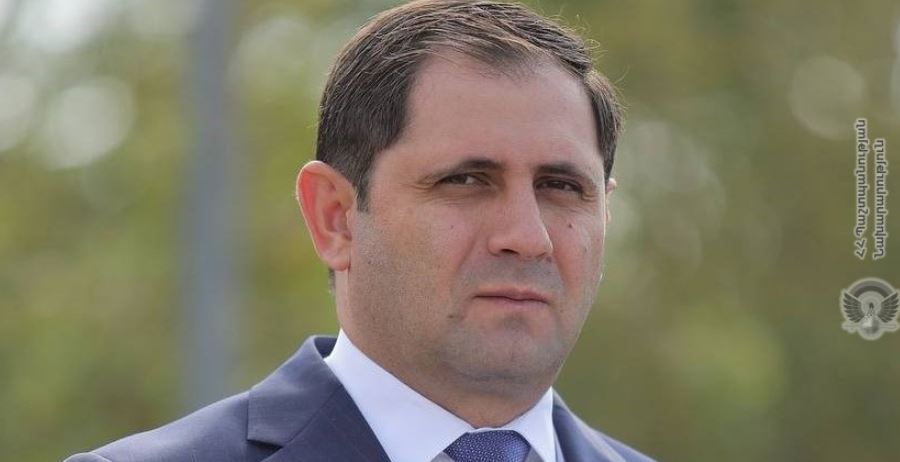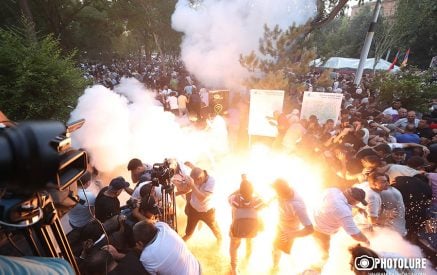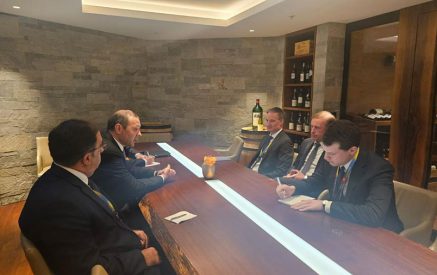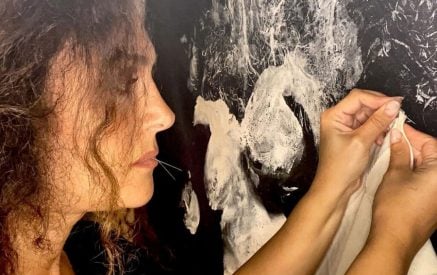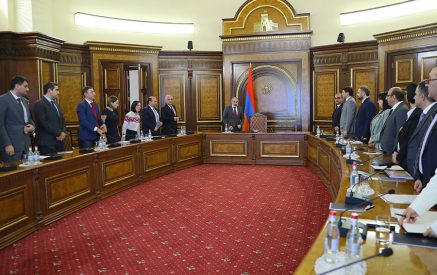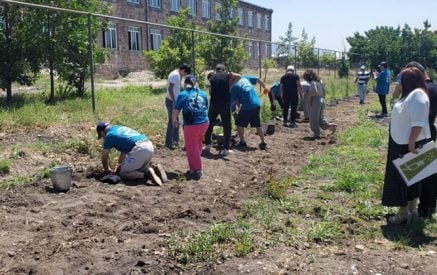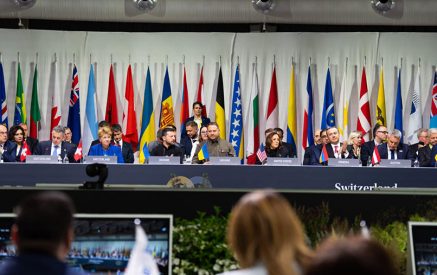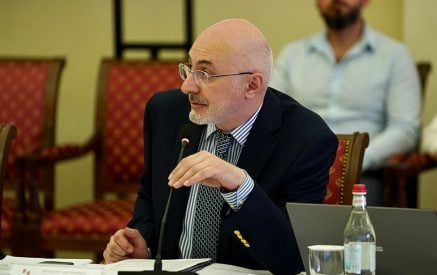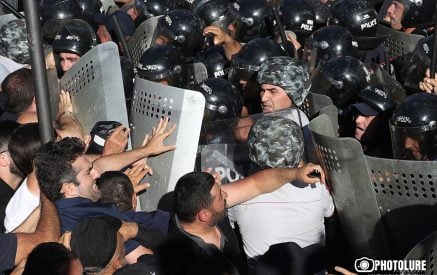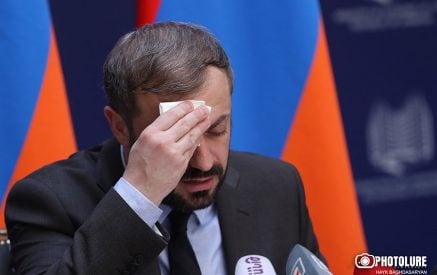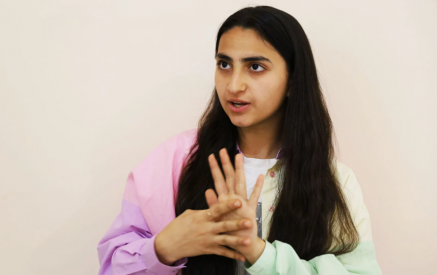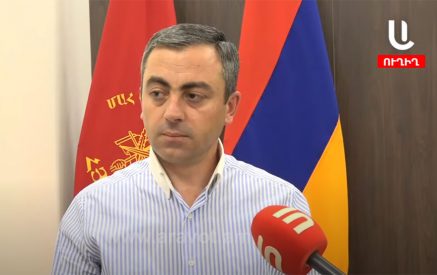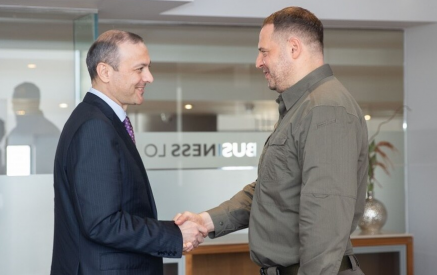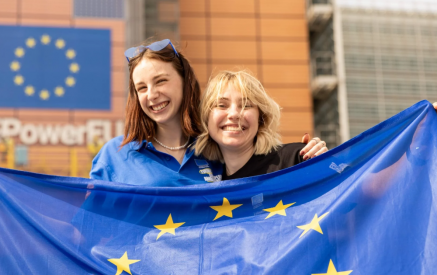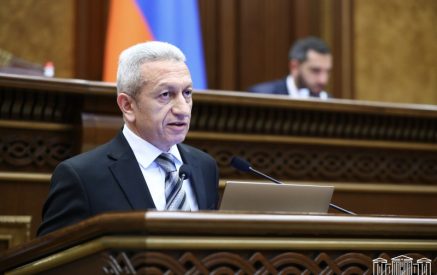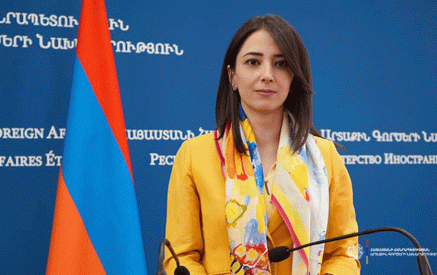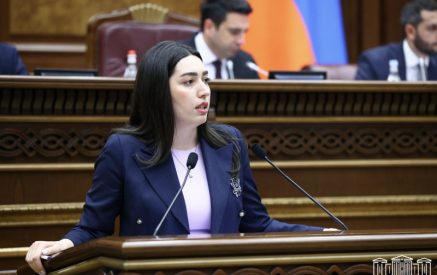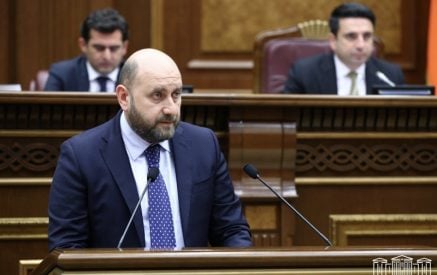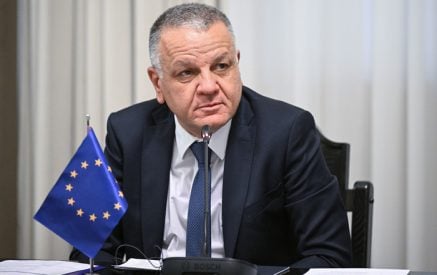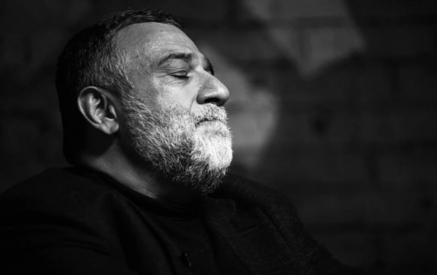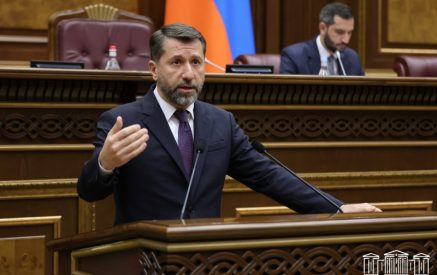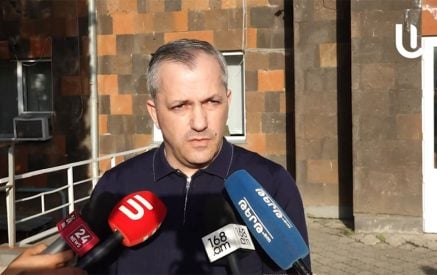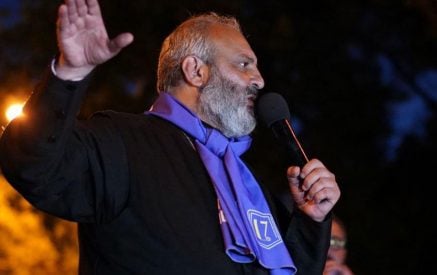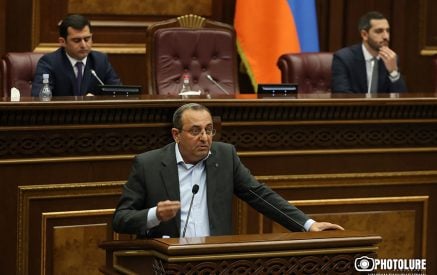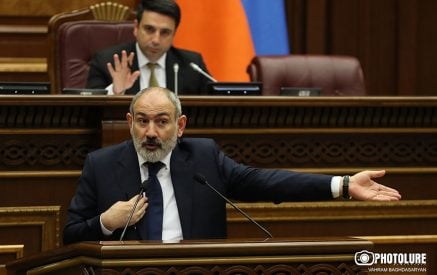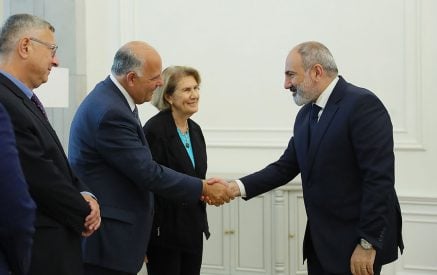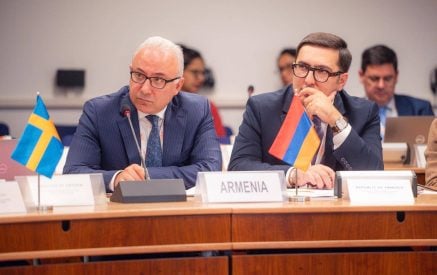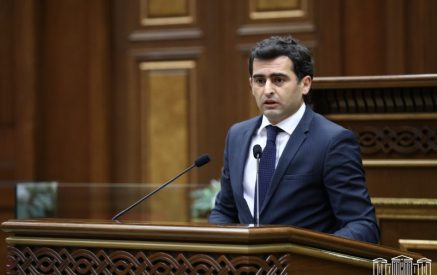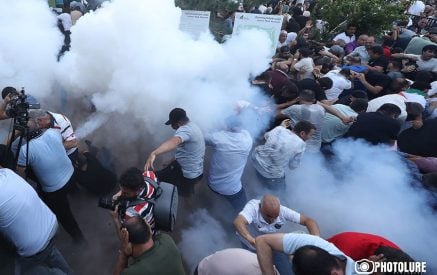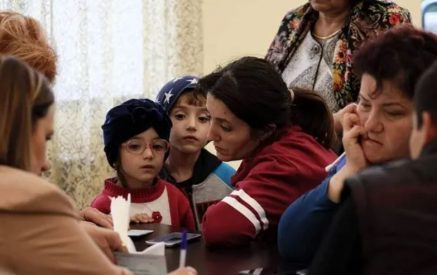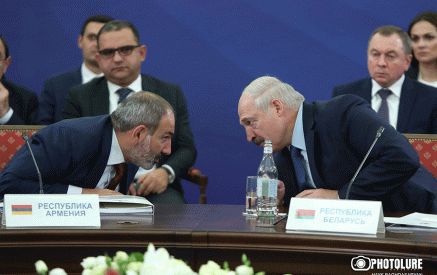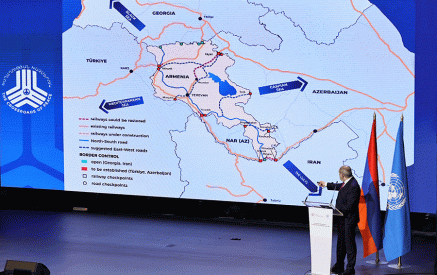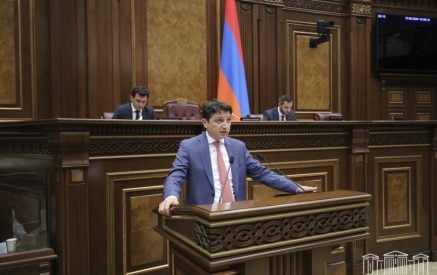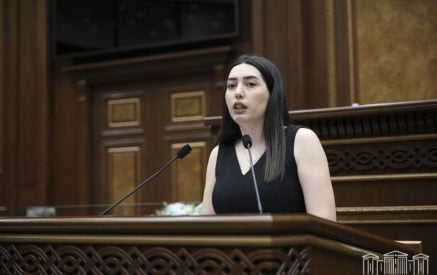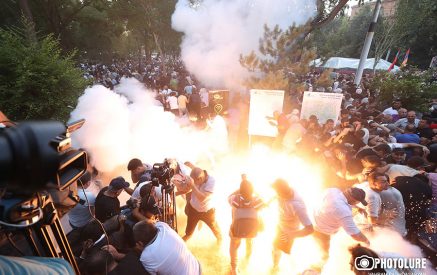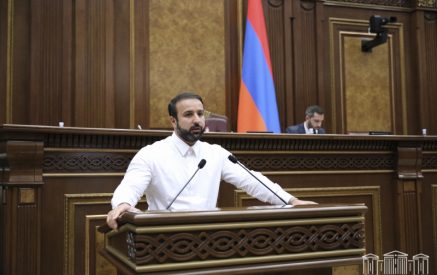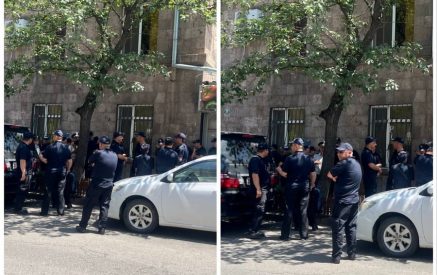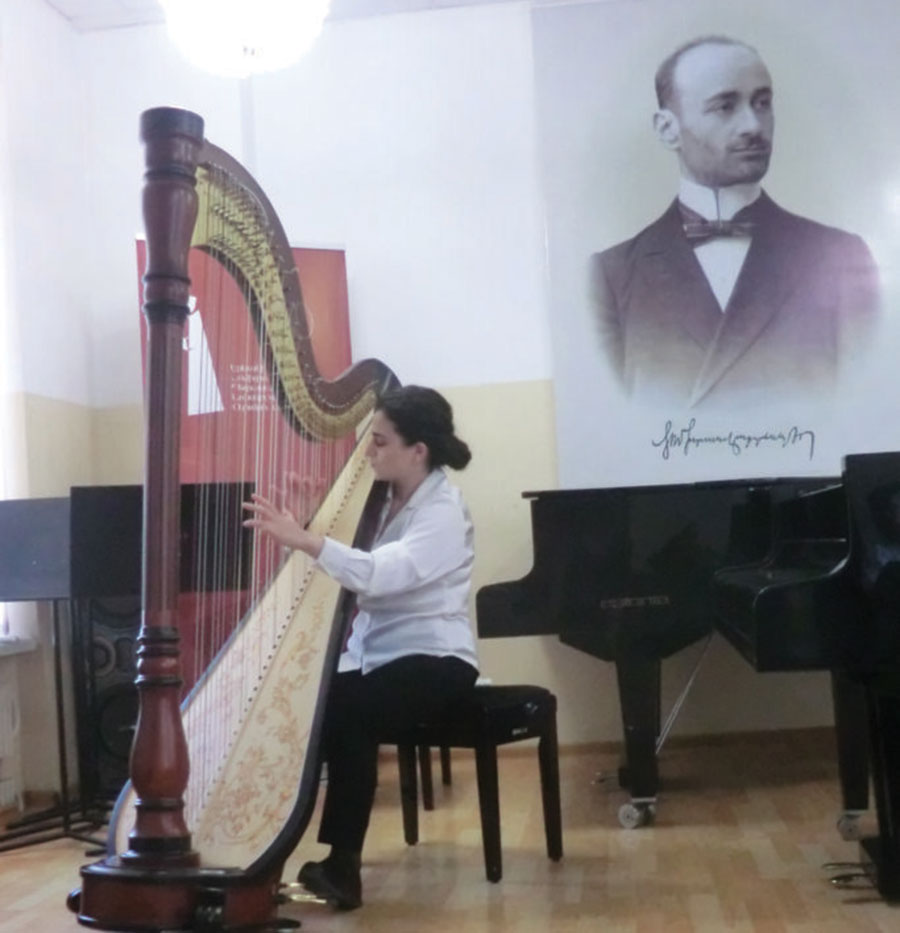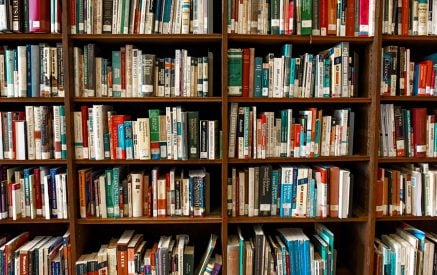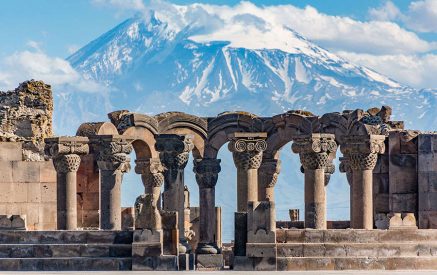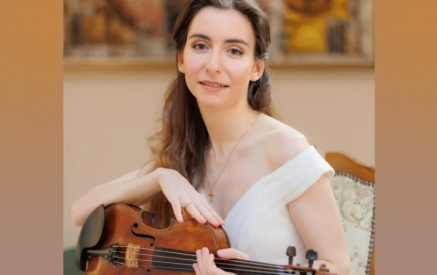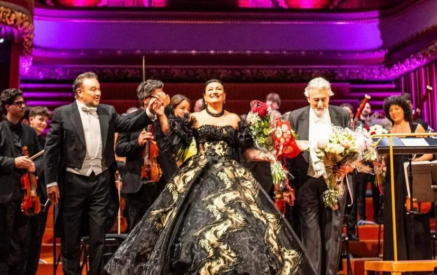by Muriel Mirak-Weissbach
GYUMRI, Armenia — It was our long-awaited trip to Armenia, the first since 2019. The Coronavirus pandemic, then repeated, escalating conflict over Nagorno-Karabakh (Artsakh), culminating in the mass expulsion of Armenians in September 2023, had interrupted our happy routine of yearly trips to Yerevan.
In April this year we finally returned for a week-long visit to the capital, several villages nearby, as well as the cultural capital Gyumri.
Read also
As always, we stayed at the Berlin Art Hotel, where Alexan Ter-Minasyan, who is also honorary consul of Germany in the Shirak and Lori regions, welcomed us with the news that members of the famous German all-male chorus Ars Musica from Thuringia would be arriving the following day. It was a very special occasion: In the German city of Halle an der Saal on that day, April 25, city representatives were celebrating the Day of City Partnerships.
Halle and Gyumri had decided to become sister cities in 2020, and three years later they officially certified the relationship. It was the first such city partnership between the two nations.
This year, on April 27, we joined their parallel celebration in Gyumri, with a tour of the city, a reception in the municipality and a visit to the conservatory. As the mayor was unfortunately ill, First Deputy Mayor Lusine Sanoyan received us in the city hall. Following introductions by Ter-Minasyan, Sanoyan welcomed the visitors from Germany, who included members of the Rotary Club and expressed her thanks for the continuing cooperation as well as hopes for new projects. She underlined the importance of the TUMO center, an “Armenian export to Germany;” this innovative project, which offers free instruction in computer technology to youngsters 12-18 years old, established its first German center in Berlin in November 2020.
Ars Musica Artistic Director Maik Gruchenberg recalled the process initiated three years ago, which has led to the twin city relationship, and stressed the importance of music as a means to bring peoples from different countries and cultures together.
Center of Culture, Music, and Sports
Sanoyan was elected by the City Council in January. She oversees several departments crucial to the city’s functioning. Gyumri, she said in a brief interview, “is a city with much to boast about, from its kindergartens, music and sports schools, to well-known museums.” And, she added, “it hosts the unique Youth Palace, which offers various classes including languages, and sewing with recycled materials.”
Youngsters can study music there and can also perform — it is a place for social contact and creative interchange.
She spoke of Gyumri’s immense pride in its “local heroes, like the esteemed Olympic Champion Arthur Aleksanyan and numerous European champions who bring honor to our city.”
It is no wonder that the city’s cultural and sporting activities are thriving, with festivals and exhibitions. Gyumri has arisen from the ashes of the devastating earthquake in 1988, but, she added, the city still “faces challenges, notably the longstanding issue of temporary shelters housing residents for over 36 years.”
In addition, there are the new refugees from Nagorno-Karabakh. Despite laudable efforts by charitable organizations and the government, which have provided some support, “employment and housing remain pressing concerns for these residents.”
Sanoyan, who in 1988 was just 4, remembers everything from the disaster that claimed about 25,000 lives, 17,000 from Gyumri: the depressed mood, the air of decay and scenes of destruction — and somber black, the color worn, it seemed, by everyone, and for decades. Now, she reported, bright colored clothing has returned and with it, a sense of optimism.
In her role in the city, she is eager to utilize local and international opportunities, to fulfill the hopes of the citizenry. “Through innovative strategies and collaborative partnerships,” she concluded, “I remain steadfast in my commitment to Gyumri’s prosperity, aiming to leave behind a legacy of enduring progress for generations to come.”
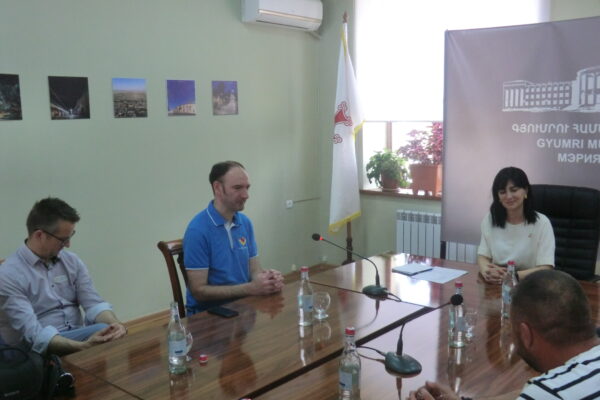
From left, Thorsten Weiss, Maik Gruchenberg and Deputy Mayor Lusine Sanoyan
The Venera Harp
The delegation from Ars Musica was scheduled to perform in the following days in the city, before going on tour. After a visit to the City Council assembly, which hosts an impressive fresco by Minas Avetisyan, we visited the Conservatory, the Gyumri branch of Komitas State Conservatory of Yerevan.
Director Prof. Hasmik H. Harutyunyan welcomed us in the concert hall, where a beautiful, huge harp dominated the stage. Harutyunyan introduced the visitors from Germany to the conservatory, named after Komitas Vardapet, the renowned Armenian musician, composer, choirmaster, and founder of Armenian ethnomusicology. Komitas travelled throughout the land in the 19th century collecting local folk melodies and transcribing them. He studied from 1896 to 1899 at the Friedrich Wilhelm University in Berlin and published studies on the characteristics of Armenian music.
In Germany he engaged in intensive study of Baroque music, especially the works of Johann Sebastian Bach, and with this new knowledge, revolutionized Armenian music, she explained. Through his studies, publications, and compositions, Harutyunyan said, Komitas came to symbolize the strong ties between Armenia and Germany to the current day.
Thorsten Weiss, Chairman of the Board of Ars Musica, delighted his listeners with the story of the harp. In discussion with the director of the conservatory years ago, he had casually inquired what he and his colleagues might be able to contribute to the music school. Prof. Harutyunyan’s quick answer, a “concert harp,” came as a surprise.
She had students who were eager to play the harp, but without an adequate instrument she could not offer instruction. It would not be easy. Weiss, undeterred, set about the task of finding one in Europe. It turned out that the market for used concert harps was practically non-existent, and the price of a new instrument appeared prohibitive. Weiss however managed to locate a magnificent new instrument, a Venera Grand Concert Harp, in St. Petersburg.
Through the mediation of Alexan Ter-Minasyan, a coalition of donors came together, the chorus, the Rotary Club and our private foundation in Germany. Through benefit concerts as well as donations, together we raised the funds to purchase and transport the instrument to Gyumri. That occurred in August 2021. Last year in June, Hasmik Mkrtchyan, a talented student at the conservatory, had presented a premiere performance on the new harp, the first such concert in the Gyumri Conservatory’s 25 years.
Now she offered an informal concert for the visitors from Germany, including my husband and myself, who were experiencing this magnificent instrument in live performance for the first time. Komitas, whose portrait hangs on the wall, seemed to be listening too. Music for a Dialog among Peoples The new harp is not just another instrument for musical education.
As Prof. Harutyunyan explained in a brief interview, the mission of the Gyumri Conservatory, founded in 1997, is to provide higher musical education and train professional musical personnel, and to fulfill this mission quality instruments are indispensable.
In addition, the conservatory contributes to preserving the musical-cultural heritage of the Shirak region. She stressed the importance of cultural exchange with musicians from other lands, and considers the city partnership with Halle as “a dream.”
If there may be a lack of instructors in some areas, professional exchanges with leading musicians become all the more vital. Master classes, for example, taught by visiting musicians, like violinists Aram Badalian and Sergei Khachatryan, are sterling examples of such cooperation. And Badalian hopes to expand this cooperation, by promoting travel for Armenian music students to Germany for study.
Komitas was a pioneer in introducing Baroque music to Armenia, and this remains an important link to Germany, Harutyunyan added. It would be desirable to arrange for small groups of Armenian musicians/students to work with larger groups in Germany. Harutyunyan herself is a musicologist, researcher, and scientific secretary at the Shirak Center for Armenian Studies of the National Academy of Sciences of the Republic of Armenia. A graduate of the Komitas State Conservatory, she received her PhD in 2005, and has published widely. She is the author of a monograph entitled, The V-XV Century Music in the Context of Armenian Historiography (2010) and about 50 articles. She has conducted research on the ashugs, bards or troubadours, who played and sang folk music, and is interested in exploring the parallels to the Minnesänger or minstrels in Germany, who were also organized in guilds. Harutyunyan has studied the history of church liturgy, and is also active as a voice trainer in this field. She teaches young men training for the priesthood, providing instruction in European solfeggio and notation as well as medieval Armenian notation, voice training, and choral work. In the realm of her scientific work, too, Harutyunyan is eager to develop cooperation with musicologists and ethnologists abroad. Such collaboration not only enhances scientific research, it forges productive relations among individuals and nations.

